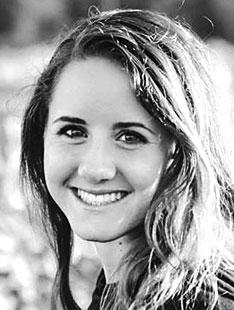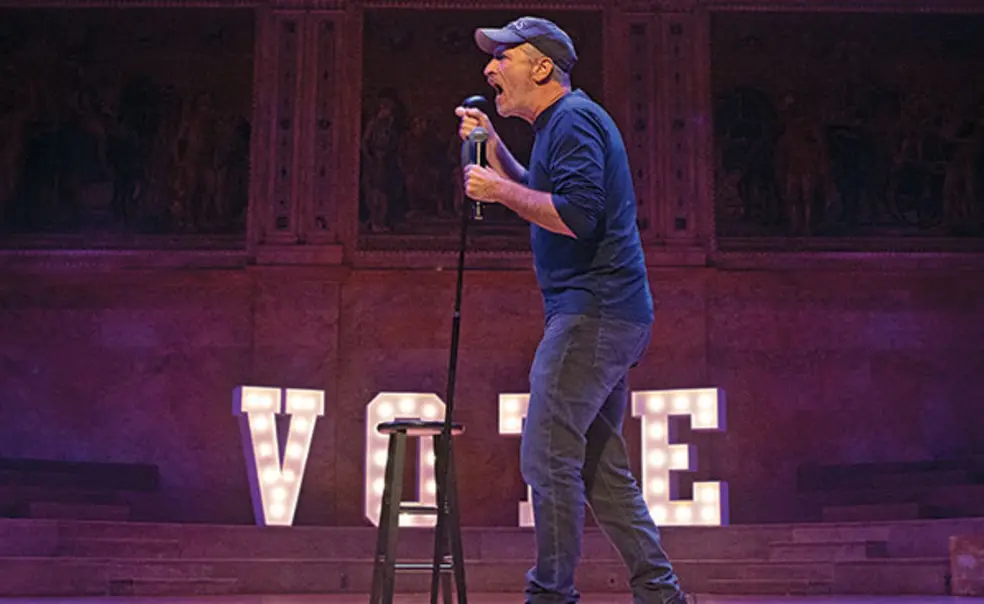Fired Up for the Midterm Elections

The approach of the midterm elections has sent fresh political energy crackling through Princeton’s campus. It’s been visible in the event fliers plastered on lampposts and the campaign stickers slapped onto laptops. And it was tangible Sept. 18, when 120 students crowded into Whig Hall for a debate on Brett Kavanaugh’s Supreme Court nomination.
Whig-Clio president Lena Hu ’20 said attendance is up this fall at the organization’s programs. “Part of it is related to midterms, and also with this presidency and recent political events, I think this is the year where people are paying more attention to the news than they have before,” she said.
That interest was evident in conversations inside and outside the classroom, students said. “When I was a freshman, I felt like politics were not a main topic of conversation. But that changed after the 2016 election,” said Paul Kigawa, a senior from New York. “[Politics] came up much more frequently and with a greater sense of urgency.”
Kigawa pointed to the Vote 100 campaign, organized by students and sponsored by the Office of the Dean of Undergraduate Students, that aimed to get 100 percent of undergraduates to participate in this year’s midterm elections — for those who are eligible, by voting; and through activism or personal engagement for those who are not.
Vote 100 kicked off in mid-September with a Stand Up and Vote event, a comedy show/voter registration drive that filled Richardson Auditorium and featured a surprise visit from former Daily Show host Jon Stewart. In videos posted on Facebook, student groups — ROTC cadets in full uniform, the Band in the stadium bleachers — challenged other organizations to take an online pledge to vote, and Vote 100 leaders staffed tables in Frist and the residential colleges. On the day before registration closed in New Jersey, more than 100 students registered in three hours.
Vote 100 is bipartisan, appealing to basic values such as civic responsibility and democratic representation. But for some students, the decision to vote was more personal. Isabel Leigh ’19 planned to cast her ballot so her parents, immigrants who are ineligible to vote, can benefit from policies enacted in their Florida county.
Riley Heath ’20, who leads the Princeton chapter of the conservative nonprofit Turning Point USA, said economic-policy issues were most important to him, “especially with the new tax plan put in by the Trump administration.”
Others cited issues such as gun control, climate change, and women’s rights. “I feel like each vote is more crucial than usual,” said Nathan Bergman, a sophomore from Arizona, where the Senate race was hotly contested.
With three weeks to go before the election, 29 percent of undergraduates had signed the Vote 100 pledge — more than double the percentage of college students aged 18–21 nationally who voted in the 2014 midterm elections. Data from a University survey in the spring of 2017 suggest that 76 percent of eligible Princeton undergraduates voted in a local, state, or national election during the previous year.
While some students missed this year’s voter-registration deadline, others intentionally abstained. “I am not voting because I believe if a voter is not informed, he or she should not vote,” said David Villarreal, a freshman from Arkansas. “Ignorant voters lead to incompetent, corrupt leadership.”
Some students view politics — hyper-polarized on the national level — as a topic to be avoided in campus discussion, said Caleb Visser ’20, a Vote 100 leader. But the campaign has tried to demonstrate that “we can talk about politics and we can talk about civic engagement ... in a non-polarized, non-threatening” way, he said.
And Visser provided a compelling example that voting does matter: In the Virginia district next to his hometown, a House of Delegates election was decided last year by a single vote.












No responses yet